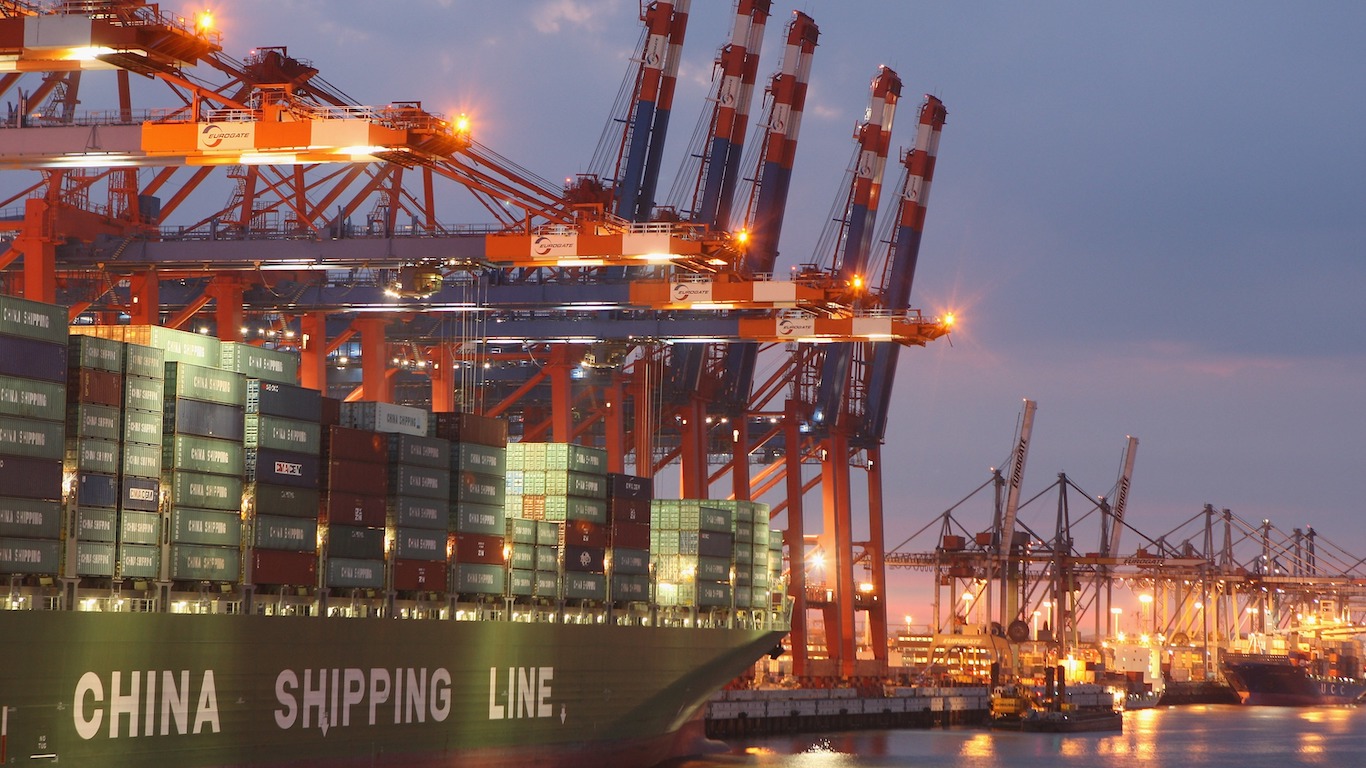Economy
OECD Global Growth Forecast Shrinks on Coronavirus Concerns

Published:
Last Updated:

The Organization for Economic Cooperation and Development (OECD) has trimmed its global economic growth forecast for 2020 from an already weak 2.9% to an anemic 2.4%. The U.S. economy, which grew by about 2.3% in 2019, is now forecast to expand by a measly 1.9% year over year.
China, the epicenter of the COVID-19 outbreak, is now expected to post real GDP growth of 4.9% in 2020 after posting growth of 6.1% in 2019. When the OECD issued its November update to the 2020 forecast, China’s growth was projected to decline in 2020 to 5.7%.
The sort-of good news is that the global economy will return to growth in 2021. The OECD raised its forecast for 2021 global growth by 0.3 percentage points to 3.3%
In its comments about the reduction in Chinese growth for 2020, the OECD said:
In China, containment efforts [against COVID-19] have involved quarantines and widespread restrictions on labour mobility and travel, resulting in unplanned delays in restarting factories after the Lunar New Year holiday and sharp cutbacks in many service sector activities. These measures imply a sizeable output contraction whilst the effects of the outbreak persist.
China’s estimated impact on global gross domestic product now stands at more than 16%, almost four times its share at the time of the SARS outbreak in 2002. As the OECD notes, “This magnifies the economic spillovers to other countries from an adverse shock in China. Even if the peak of the outbreak proves short-lived, with a gradual recovery in output and demand over the next few months, it will still exert a substantial drag on global growth in 2020.”
The OECD’s 2020 forecast could weaken further if the outbreak spreads across more of the Asia-Pacific region and in the advanced economies of North America and Europe. The agency specifically mentions Japan, Korea and Australia, all of which have strong connections with China. A longer-lasting and more intensive outbreak could cut the OECD’s global growth forecast to a scant 1.5% for 2020.
The agency recommends that governments have effective and “well-resourced” public health measures to prevent further infection and contagion. Governments should also “protect the incomes of vulnerable social groups and businesses” while the outbreak continues.
Macroeconomic policies may recover once the outbreak eases, but the OECD said policy “cannot offset the immediate disruptions that result from enforced shutdowns and travel restrictions.” Taking a broader view of policy options reveals a number of steps governments and central banks can use to diffuse the effects of the novel coronavirus epidemic.
While the COVID-19 outbreak has the most significant impact on the OECD’s estimates, other risks remain. Trade tensions, particularly between the United States and China, could intensify again and tensions between Europe and the United States also may rise. The impact of Brexit is another cause for concern, as is the susceptibility of BBB-rated corporate bonds to be downgraded to junk if the downturn in financial markets continues for longer than expected.
Retirement planning doesn’t have to feel overwhelming. The key is finding expert guidance—and SmartAsset’s made it easier than ever for you to connect with a vetted financial advisor.
Here’s how it works:
Why wait? Start building the retirement you’ve always dreamed of. Click here to get started today!
Thank you for reading! Have some feedback for us?
Contact the 24/7 Wall St. editorial team.